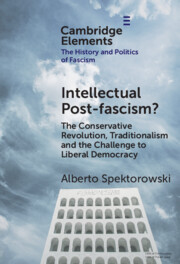Refine search
Actions for selected content:
149 results
14 - Poetic Accumulation, Modernist Verse, and Imperial Capital
- from Part III - Figures, Movements, and Histories: 1900–1945
-
-
- Book:
- The Cambridge Companion to British Literature and Empire
- Published online:
- 20 November 2025
- Print publication:
- 04 December 2025, pp 202-215
-
- Chapter
- Export citation
Chapter 10 - Poststructuralism
- from Part II - Theoretical Turn
-
-
- Book:
- African Literature in Transition
- Published online:
- 07 November 2025
- Print publication:
- 20 November 2025, pp 189-202
-
- Chapter
- Export citation
Chapter 8 - The African Location of Postcolonialism
- from Part II - Theoretical Turn
-
-
- Book:
- African Literature in Transition
- Published online:
- 07 November 2025
- Print publication:
- 20 November 2025, pp 157-170
-
- Chapter
- Export citation
Chapter 7 - Orality and Modern African Writing
- from Part I - Decolonization Currents
-
-
- Book:
- African Literature in Transition
- Published online:
- 07 November 2025
- Print publication:
- 20 November 2025, pp 140-154
-
- Chapter
- Export citation
7 - Critical Security Studies
- from Part I - Security in Theory
-
- Book:
- Understanding International Security
- Published online:
- 11 October 2025
- Print publication:
- 30 October 2025, pp 133-154
-
- Chapter
- Export citation
Rethinking disconnection as in-betweenness: Nepal in Chinese knowledge production (1910s–1940s)
-
- Journal:
- International Journal of Asian Studies , First View
- Published online by Cambridge University Press:
- 23 October 2025, pp. 1-16
-
- Article
-
- You have access
- Open access
- HTML
- Export citation
6 - Crisis and Expansion of Human Rights in the 1970s
-
- Book:
- Population Control as a Human Right
- Published online:
- 09 October 2025
- Print publication:
- 23 October 2025, pp 110-128
-
- Chapter
- Export citation
Memorializing the Nation-State: Minar-e-Pakistan between Memory and History
-
- Journal:
- Critical Pakistan Studies ,
- Published online by Cambridge University Press:
- 15 October 2025, pp. 1-21
-
- Article
-
- You have access
- Open access
- HTML
- Export citation
Remaking a Sovereign Landlord: Property and Dispossession Along the Basra Oil Frontier
-
- Journal:
- Comparative Studies in Society and History , First View
- Published online by Cambridge University Press:
- 26 September 2025, pp. 1-27
-
- Article
-
- You have access
- Open access
- HTML
- Export citation
Chapter 15 - British Fiction Beyond Postmodernism
-
-
- Book:
- The Cambridge Companion to British Postmodern Fiction
- Published online:
- 07 August 2025
- Print publication:
- 21 August 2025, pp 240-254
-
- Chapter
- Export citation
Decolonizing Decolonization
-
- Journal:
- Comparative Studies in Society and History / Volume 67 / Issue 4 / October 2025
- Published online by Cambridge University Press:
- 02 July 2025, pp. 890-915
-
- Article
-
- You have access
- Open access
- HTML
- Export citation

Intellectual Post-fascism?
- The Conservative Revolution, Traditionalism and the Challenge to Liberal Democracy
-
- Published online:
- 23 June 2025
- Print publication:
- 10 July 2025
-
- Element
- Export citation
6 - The Holocaust and Modernity
-
-
- Book:
- The Cambridge History of the Holocaust
- Published online:
- 16 May 2025
- Print publication:
- 12 June 2025, pp 113-133
-
- Chapter
- Export citation
Chapter 9 - Postcolonial Space
- from Part II - Developments
-
-
- Book:
- Space and Literary Studies
- Published online:
- 07 May 2025
- Print publication:
- 22 May 2025, pp 156-171
-
- Chapter
- Export citation
Chapter 3 - Wales
- from Part I - Places
-
-
- Book:
- Gerard Manley Hopkins in Context
- Published online:
- 16 January 2025
- Print publication:
- 16 January 2025, pp 23-31
-
- Chapter
- Export citation
3 - A Micro-Level Theory of UN Peacekeeping
- from Part I - Localized Peace Enforcement Theory
-
- Book:
- Local Peace, International Builders
- Published online:
- 02 January 2025
- Print publication:
- 16 January 2025, pp 37-74
-
- Chapter
-
- You have access
- Open access
- Export citation
Chapter 18 - Doris Lessing
- from Part III - 1945–1975
-
-
- Book:
- The British Novel of Ideas
- Published online:
- 05 December 2024
- Print publication:
- 12 December 2024, pp 308-321
-
- Chapter
- Export citation
The Liberal International Order as an Imposition: A Postcolonial Reading
-
- Journal:
- Ethics & International Affairs / Volume 38 / Issue 2 / Summer 2024
- Published online by Cambridge University Press:
- 22 November 2024, pp. 162-179
-
- Article
-
- You have access
- Open access
- HTML
- Export citation
Chapter 6 - Thriving Workplaces: Wellness, Fairness, and Worthiness at Work
-
-
- Book:
- How People Thrive
- Published online:
- 14 November 2024
- Print publication:
- 21 November 2024, pp 173-202
-
- Chapter
- Export citation
Introduction: A Weak Theory of Transnationalism
-
-
- Book:
- Transnationalism in Irish Literature and Culture
- Published online:
- 13 November 2024
- Print publication:
- 14 November 2024, pp 1-20
-
- Chapter
- Export citation
